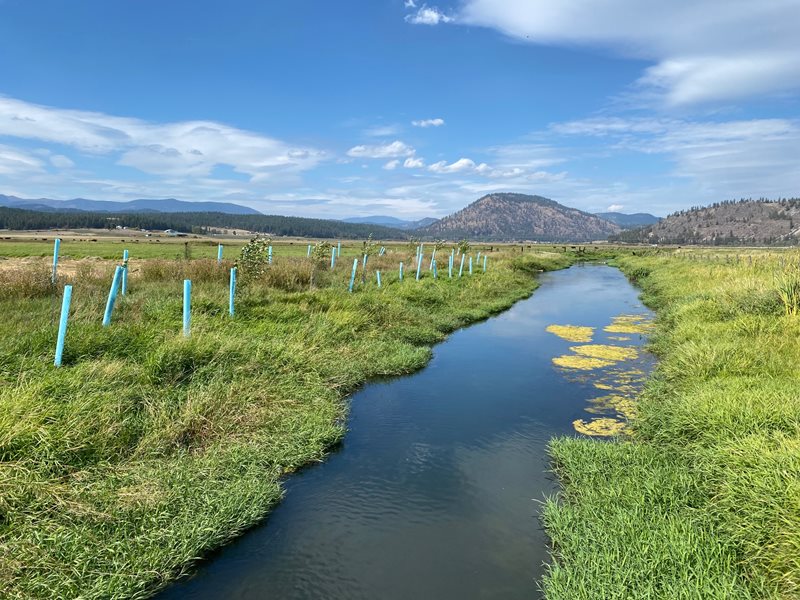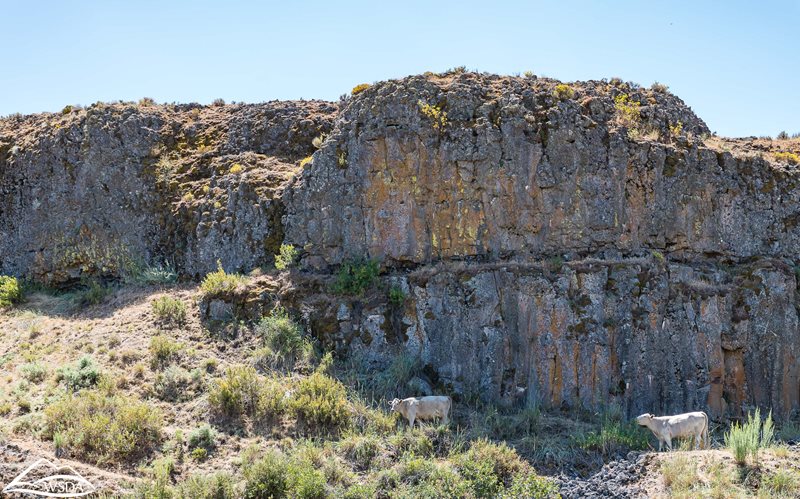
The Voluntary Clean Water Guidance for Agriculture is a technical resource in development for agricultural producers that describes our recommended best management practices (BMPs) to protect water quality. Our goal is to support healthy farms and help farmers meet clean water quality standards. We understand that each farm is unique and each producer is managing a differing set of site, soil, and climate factors. The vision for each chapter in this guidance is to help producers identify the BMPs and implementation strategies that best fit their farm’s needs.
Once completed, the guidance will have chapters on 13 different topics. While we are working to draft a number of chapters, so far we have released one chapter for public review, Cropping Methods: Tillage and Residue Management.
We are now accepting comment on three additional chapters until Dec. 23, 2022:
- Livestock Management-Pasture & Rangeland Grazing
- Sediment Control: Soil Stabilization & Sediment Capture (Structural)
- Riparian Areas & Surface Water Protection
The Cropping Methods chapter is still available for comment. If you have already submitted comments on this chapter, you do not need to submit the same comments again.
After this set is complete and submitted to the U.S. Environmental Protection Agency (EPA), we will work on the next set of chapters, providing opportunities for public feedback along the way.
Once completed, the guidance will cover a wide-range of activities that can impact water quality, from livestock management to pesticides and irrigation. Photo: WSDA
Who helped write the guidance?
We work closely with an Advisory Group to develop each chapter. The group includes representatives from the National Resource Conservation Service (NRCS), Conservation Districts, the Washington Department of Agriculture, State Conservation Commission, Washington State University, agriculture producer groups, environmental groups, the Environmental Protection Agency, the Washington Department of Fish and Wildlife, and the Northwest Indian Fisheries Commission.
Our submission to EPA
We are required to submit these guidance chapters to EPA as part of our updated Water Quality Management Plan to Control Nonpoint Sources of Pollution (Nonpoint Plan) by the end of 2022.
At this time, we are also taking feedback on the Nonpoint Plan, which we are updating to reflect our current approach to addressing nonpoint sources of pollution. Nonpoint pollution is the technical name for diffuse sources of pollution that do not come from a pipe or ditch. Sources of nonpoint pollution are not always easy to track, but can include unmanaged stormwater runoff, agriculture and forestry practices, and failing septic systems. Learn more about nonpoint pollution.
EPA requires our state to have an up-to-date Nonpoint Plan in order to maintain our nonpoint grant and loan program, also know as Section 319 funding.
Our draft updates to the Nonpoint Plan reflect the work we have done in the past few years, including important programs and projects that are already working, such as adding in explanation of the No Discharge Zone, expansion of the on-site sewage system loan program, and updates to our ongoing work in the Lower Yakima Valley. We also updated information related to forest practices, our grants program, monitoring programs, Water Quality Assessment, and the list of water clean-up projects.
We added information on our work related to environmental justice and climate change.
For the most part, these updates reflect ongoing work that needed to be included in the Nonpoint Plan.
We welcome your feedback
We are accepting comments on the draft chapters and the updated Nonpoint Plan until Dec. 23, 2022. You can access these materials on our Voluntary Clean Water Guidance for Agriculture webpage.
To submit comments:
- Go to our Voluntary Clean Water Guidance Comment Form.
- Select the document you want to provide feedback on before entering your comments
Join us for an informational webinar
We are hosting an informational webinar on Dec. 14 at 9:30 a.m. to present information from the guidance and Nonpoint Plan and answer questions.
This webinar is not a formal hearing and we will not be taking formal comments during the webinar. Please submit your comments using the comment form.
More details about the guidance is available in our focus sheet and on the guidance webpage.


